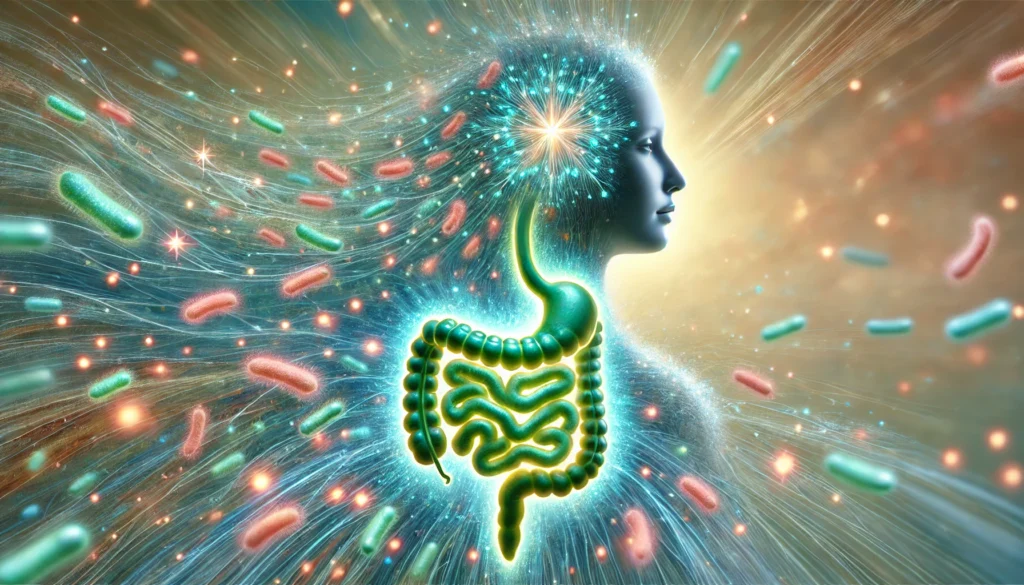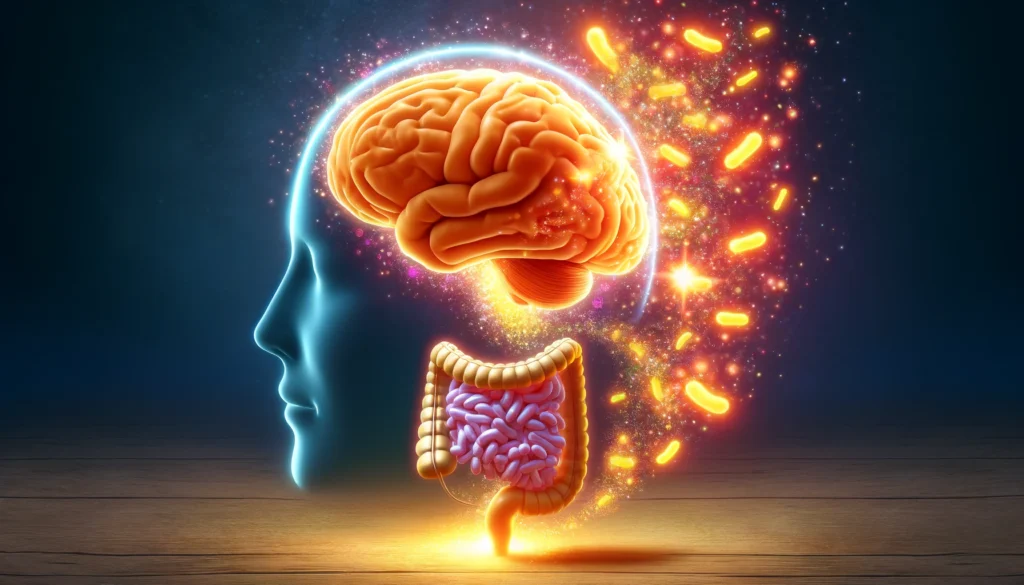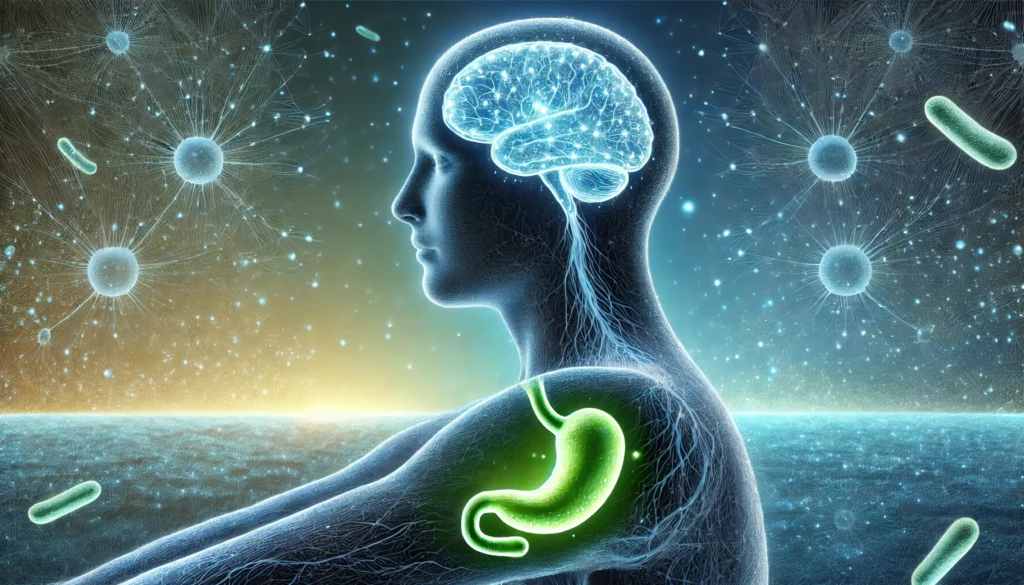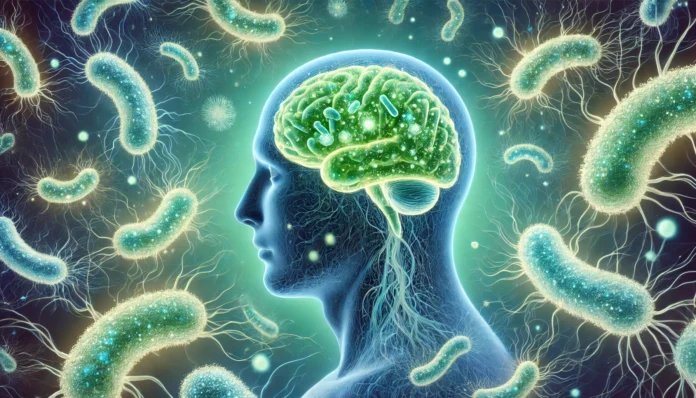Understanding the Gut-Brain Connection: How Probiotics Influence Mental Health
The human body is an intricate network of systems working in harmony, with one of the most fascinating interconnections being between the gut and the brain. This relationship, known as the gut-brain axis, plays a fundamental role in regulating mood, cognitive function, and emotional well-being. Emerging research has shown that the trillions of bacteria residing in the gut, collectively known as the microbiome, significantly influence this axis. As a result, the use of probiotics for mental health has gained traction, offering promising avenues for alleviating conditions like anxiety, stress, and depression.
You may also like: How to Improve Gut Health Naturally: Science-Backed Tips for a Stronger Microbiome
Probiotics are live microorganisms that confer health benefits when consumed in adequate amounts. They are commonly associated with digestive health, but their role extends beyond the gastrointestinal system. Specific probiotic strains can modulate neurotransmitter production, reduce inflammation, and strengthen the body’s stress response. This raises an important question: can probiotics help anxiety, and if so, what are the best strains to support mental well-being? As researchers continue to explore probiotics and brain health, it becomes evident that certain strains may serve as natural allies in promoting emotional stability and resilience.
The Science Behind Probiotics and Their Role in Brain Health
The gut microbiome is an ecosystem of bacteria, viruses, fungi, and other microorganisms that play a vital role in digestion, immune function, and neurotransmitter synthesis. The gut and brain communicate through biochemical signals that include hormones, neurotransmitters, and inflammatory molecules. When the gut microbiota is balanced, it supports optimal mental health. However, disruptions in microbial diversity, often caused by poor diet, stress, antibiotics, and lifestyle factors, can lead to imbalances that contribute to anxiety, depression, and mood disorders.
Probiotics exert their effects on the brain through multiple mechanisms. They produce neurotransmitters like serotonin and gamma-aminobutyric acid (GABA), which regulate mood and anxiety levels. They also influence inflammation and the body’s stress response by modulating the hypothalamic-pituitary-adrenal (HPA) axis. Studies suggest that probiotics for stress can lower cortisol levels, the hormone associated with stress, thereby mitigating symptoms of anxiety and depression.
Best Probiotic Strains for Anxiety and Stress Relief
Not all probiotics are created equal when it comes to mental health benefits. While many strains contribute to digestive health, only a select few have been extensively studied for their effects on anxiety, stress, and mood disorders. Some of the best probiotics for anxiety and stress include Lactobacillus and Bifidobacterium strains, which have shown positive results in clinical trials.
- Lactobacillus rhamnosus (JB-1): This strain has demonstrated its ability to reduce anxiety-like behavior by modulating GABA receptors in the brain. Studies indicate that it can decrease stress-induced responses and promote emotional resilience.
- Bifidobacterium longum (1714): Known for its calming effects, this strain has been shown to lower cortisol levels and improve cognitive performance under stress.
- Lactobacillus helveticus R0052 and Bifidobacterium longum R0175: This combination has been studied for its effects on stress and mood regulation, demonstrating significant reductions in anxiety and depression symptoms.
- Lactobacillus plantarum (PS128): Emerging research suggests this strain enhances dopamine and serotonin levels, both of which are critical for mood stabilization.
These probiotic strains work by interacting with the gut microbiome, reducing inflammation, and supporting neurotransmitter function, making them some of the best probiotics for mood and anxiety.

The Role of Probiotics in Depression Management
Depression is a complex mental health disorder influenced by genetic, environmental, and biochemical factors. Increasing evidence suggests that gut dysbiosis, or an imbalance of gut bacteria, may contribute to depressive symptoms. Probiotics for depression aim to restore microbial balance, enhance serotonin production, and reduce systemic inflammation.
One of the most studied connections between probiotics and depression involves serotonin, the neurotransmitter responsible for regulating mood. Approximately 90% of the body’s serotonin is produced in the gut, meaning that maintaining a healthy gut microbiome is essential for emotional well-being. The best probiotic for serotonin production includes strains such as Lactobacillus reuteri, Lactobacillus helveticus, and Bifidobacterium infantis, all of which have been linked to increased serotonin levels and improved mood regulation.
Clinical studies on probiotics and the brain have reported promising results. Participants taking probiotic supplements often experience enhanced mood, reduced depressive symptoms, and improved cognitive function. The 10 best probiotics for depression and anxiety include multi-strain formulations that target both gut health and neurotransmitter production, optimizing mental resilience.
Addressing Concerns: Do Probiotics Cause Anxiety or Depression?
While probiotics are generally considered beneficial, some individuals express concerns about whether they could have adverse effects, such as increased anxiety or depression. It is essential to understand that while probiotics positively influence gut and brain health in most cases, individual responses may vary.
Certain probiotic strains may cause temporary digestive discomfort as the gut microbiome adjusts. However, there is no substantial scientific evidence to suggest that probiotics cause anxiety or depression. Instead, most studies indicate that they support mental well-being. If an individual experiences worsening symptoms, it may be due to an imbalance in the gut microbiome or an incompatibility with a specific probiotic strain. In such cases, adjusting the type or dosage of probiotics may be necessary.
Choosing the Best Probiotic for Mental Health
Selecting the best probiotic for mental health requires an understanding of strain specificity, dosage, and formulation. Multi-strain probiotics often provide enhanced benefits by targeting different aspects of gut health and neurotransmitter production. When choosing a probiotic, consider the following factors:
- Strain specificity: Look for strains that have been clinically studied for anxiety, stress, and mood enhancement.
- Colony-forming units (CFUs): Higher CFU counts may offer more significant benefits, but effectiveness depends on strain selection rather than sheer quantity.
- Delivery mechanism: Capsules, powders, and fermented foods all serve as viable probiotic sources. However, encapsulated probiotics with enteric coating may enhance survivability in the digestive tract.

Frequently Asked Questions (FAQ) on Probiotics and Mental Health
1. Can probiotics help anxiety, and how long does it take to see results?
Yes, probiotics for anxiety can be beneficial, but the timeline for noticeable improvements varies among individuals. Some people report feeling relief within a few weeks, while others may require several months to experience significant changes. This variability depends on factors such as gut microbiome diversity, diet, lifestyle, and the specific probiotic strain used. Research indicates that strains like Lactobacillus rhamnosus and Bifidobacterium longum are particularly effective in modulating stress responses and lowering cortisol levels. To optimize results, it is essential to maintain consistency in probiotic intake and support gut health with a balanced diet rich in fiber and prebiotics.
2. What is the best probiotic for mental health, and can different strains be combined?
The best probiotic for mental health often depends on the specific symptoms being targeted. Lactobacillus helveticus and Bifidobacterium longum are widely studied for their anxiolytic effects, while Lactobacillus plantarum may help regulate dopamine levels, improving mood stability. Combining different strains can be beneficial as multi-strain formulations often provide broader support for both gut and brain health. However, it is important to choose clinically studied strains with proven mental health benefits. Consulting with a healthcare provider can help tailor a probiotic regimen to your unique needs.
3. Do probiotics help with anxiety, or do they simply support general well-being?
While probiotics support overall gut health, certain strains have been specifically linked to reducing symptoms of anxiety. Studies show that probiotics and brain health are closely connected through the gut-brain axis, which influences neurotransmitter production and stress response regulation. Probiotics for stress and anxiety can directly impact the hypothalamic-pituitary-adrenal (HPA) axis, helping to moderate cortisol levels and reduce inflammation. The key is selecting strains that have been clinically studied for mental health, ensuring that their effects go beyond digestive health and contribute to emotional balance.
4. Can probiotics be a replacement for traditional anxiety and depression medications?
Probiotics for depression and anxiety can complement conventional treatments but should not be viewed as a standalone replacement for prescribed medications. Antidepressants and anti-anxiety medications work through different mechanisms, often targeting neurotransmitter pathways more directly. However, integrating probiotics into a holistic treatment plan can enhance overall mental resilience, reduce inflammation, and improve gut health, which in turn supports brain function. Always consult with a healthcare professional before making any changes to prescribed treatment plans.
5. Are there risks of taking probiotics for mood and anxiety?
For most people, probiotics for mental health are safe and well-tolerated. However, individuals with compromised immune systems or severe gut disorders should consult a doctor before taking them. Some people may experience mild digestive discomfort initially, such as bloating or gas, as their microbiome adjusts. While rare, certain probiotic strains might interact with pre-existing gut conditions, so selecting high-quality, well-researched strains is essential. Monitoring symptoms and adjusting strains if needed can help maximize benefits while minimizing potential side effects.
6. Can probiotics cure my anxiety completely, or do they offer only partial relief?
Although some individuals have reported that probiotics cured my anxiety, most research suggests that they offer support rather than a definitive cure. Probiotics for stress and anxiety function by modulating gut bacteria, influencing neurotransmitter levels, and reducing systemic inflammation, all of which can contribute to mental well-being. However, anxiety is a multifaceted condition influenced by genetics, environment, and lifestyle. While probiotics can be an effective part of a broader mental health strategy, they should be combined with stress management techniques, therapy, and proper nutrition for optimal results.
7. Do probiotics cause anxiety in some cases?
Although rare, some people report experiencing increased anxiety when starting probiotics. This reaction is typically temporary and may be due to changes in the gut microbiome that influence neurotransmitter activity. Some strains may not be suitable for everyone, and in cases where probiotics cause anxiety, adjusting the dosage or switching to a different strain can help. Additionally, symptoms such as bloating or mild digestive discomfort can temporarily affect mood. If persistent anxiety occurs, discontinuing the probiotic and seeking guidance from a healthcare provider is recommended.
8. How do probiotics for depression work differently than probiotics for anxiety?
Probiotics anxiety depression research suggests that while there is overlap, different mechanisms may be at play. Probiotics for depression primarily focus on increasing serotonin production and reducing inflammation, both of which are crucial for stabilizing mood. Bifidobacterium infantis and Lactobacillus reuteri have been linked to higher serotonin levels, which play a role in alleviating depressive symptoms. Probiotics for anxiety and stress, on the other hand, often target the HPA axis and GABA production, helping to calm the nervous system. While both conditions involve gut-brain interactions, the approach may vary based on the symptoms being addressed.
9. Are fermented foods as effective as probiotic supplements for mental health?
Fermented foods like yogurt, kimchi, and kefir contain naturally occurring probiotics, but their strain diversity and potency can vary. While they can support gut health, they may not always contain the specific strains needed for targeted mental health benefits. The best probiotic for serotonin production or anxiety relief is often found in clinical-grade supplements, which provide consistent dosages of well-researched strains. That said, incorporating both fermented foods and high-quality probiotic supplements can create a synergistic effect, enhancing overall gut and brain health.
10. What does the future of probiotics and the brain look like?
The study of probiotics and the brain is an evolving field, with emerging research exploring the potential of psychobiotics—probiotics specifically designed to support mental health. Scientists are investigating how individualized microbiome analysis could lead to personalized probiotic recommendations tailored to specific mental health conditions. Additionally, new delivery methods, such as synbiotics (a combination of probiotics and prebiotics), are being developed to enhance efficacy. As research advances, probiotics are likely to play an even more significant role in integrative approaches to treating stress, anxiety, and depression, offering new hope for those seeking natural mental health solutions.

Conclusion: The Future of Probiotics in Mental Health Support
The connection between probiotics and brain health continues to be an area of active research, with growing evidence supporting their role in mental well-being. The best probiotics for anxiety and stress, such as Lactobacillus rhamnosus and Bifidobacterium longum, work by modulating neurotransmitter levels, reducing inflammation, and supporting the gut-brain axis. Similarly, probiotics for depression focus on enhancing serotonin production and restoring microbial balance.
As scientific understanding deepens, probiotics are likely to become a mainstream complementary approach for managing mental health conditions. Whether used alongside conventional treatments or as part of a holistic wellness plan, probiotics offer a promising, natural way to support emotional resilience and cognitive function. While individual responses may vary, choosing the right probiotic strains can provide substantial benefits, reinforcing the critical role of gut health in mental well-being.
gut-brain connection, microbiome and mental health, probiotics for emotional well-being, best bacteria for brain health, natural remedies for anxiety, stress relief through gut health, serotonin and digestive health, probiotic therapy for mood, psychobiotics and mental wellness, brain-boosting probiotics, gut flora and stress management, holistic mental health strategies, fermented foods for mood, anxiety relief supplements, mental clarity through probiotics, probiotics and neurotransmitters, gut bacteria and serotonin production, mood-enhancing probiotic strains, natural supplements for depression, digestive health and emotional balance
Further Reading:
The influence of the gut-brain axis on anxiety and depression
Probiotic consumption relieved human stress and anxiety symptoms
Probiotics may help boost mood and cognitive function
Disclaimer
The information contained in this article is provided for general informational purposes only and is not intended to serve as medical, legal, or professional advice. While Health11News strives to present accurate, up-to-date, and reliable content, no warranty or guarantee, expressed or implied, is made regarding the completeness, accuracy, or adequacy of the information provided. Readers are strongly advised to seek the guidance of a qualified healthcare provider or other relevant professionals before acting on any information contained in this article. Health11News, its authors, editors, and contributors expressly disclaim any liability for any damages, losses, or consequences arising directly or indirectly from the use, interpretation, or reliance on any information presented herein. The views and opinions expressed in this article are those of the author(s) and do not necessarily reflect the official policies or positions of Health11News.


